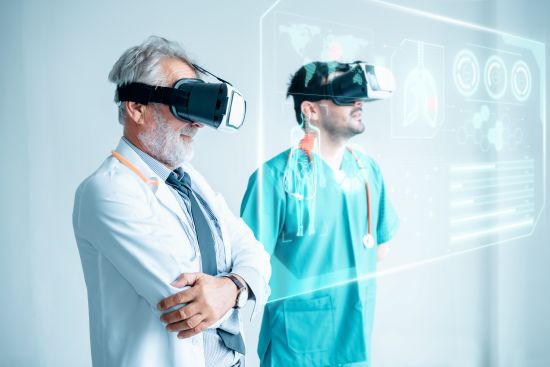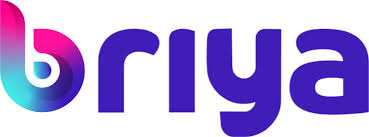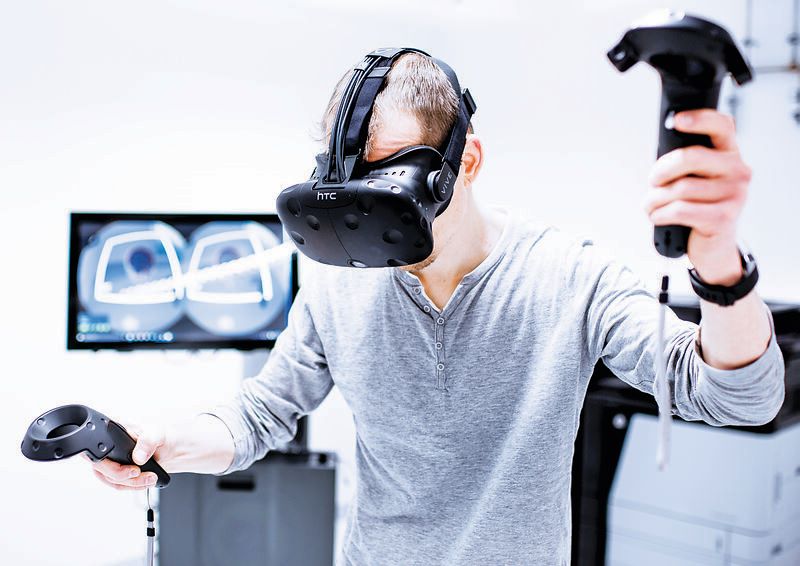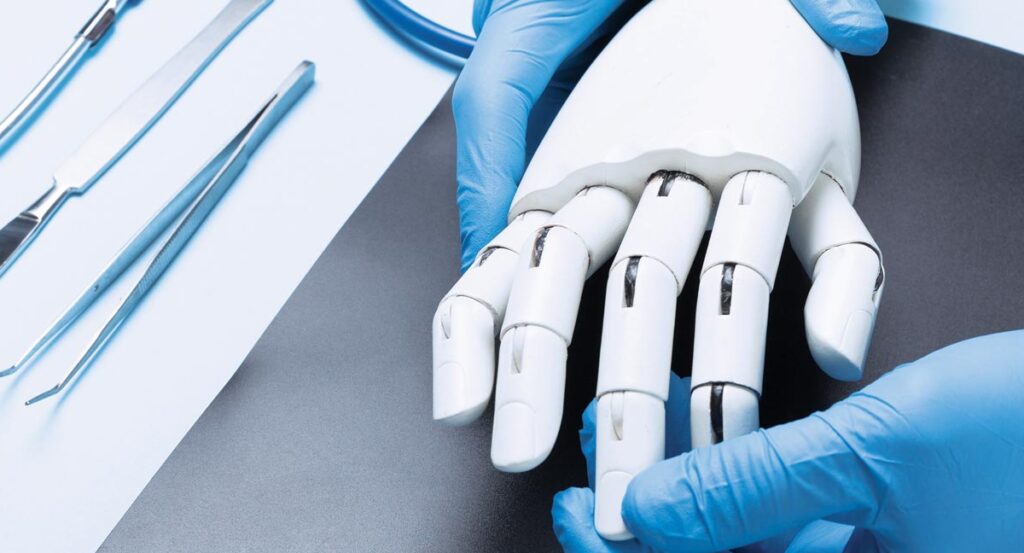
How Health 4.0 is transforming clinical development for a better future
The rapid evolution of high-tech applications and services such as AI, big data, smart devices, the IoT and virtual reality is reshaping industries worldwide.
Healthcare is no exception.
In this article, you’ll learn more about Health 4.0, focusing on how it can positively impact clinical development. You’ll also meet some of the most innovative startups participating in programs like DayOne’s digitally enabled clinical development accelerator, working on industry-transforming solutions.
What you will find in this article:
What is Health 4.0?
Health 4.0 applies Industry 4.0 technologies (referring to the Fourth Industrial Revolution) such as big data analytics, AI, IoT and cloud computing to healthcare. These technologies enable improved diagnostics, prevention and treatment while optimizing resource management and care coordination.
How Health 4.0 benefits multiple stakeholders
Healthcare is a topic that concerns everyone on an individual basis.

Health 4.0 gives patients more personalized, efficient and accessible care. For example, technologies like wearables and mobile apps provide continuous health monitoring data that can be leveraged by people in their daily lives (e.g., type 1 diabetes patients with closed-loop insulin pumps, heartbeat monitoring, and non-invasive and medication-free pain management solutions) or be discussed with their healthcare specialists to adjust their treatment.
But health 4.0 doesn’t just benefit patients. Integrating the latest technology improves the healthcare system across the board.

Healthcare providers can deliver higher–quality care with greater accuracy. AI and machine learning tools can help diagnose diseases faster or better, suggest treatments and manage patient data more effectively, freeing up time for healthcare professionals to focus on direct patient care.

Hospitals and clinics can achieve higher operational efficiency through streamlined processes, reduced overlaps and duplication (e.g. blood tests, imaging exams), and improved resource management, including better follow-through during the patient’s journey. Integrating AI and data analytics helps optimize everything from patient flow to inventory management.

Insurance companies can use data on patient health and outcomes to assess risks better and manage claims more efficiently.

Governments and regulatory bodies benefit from a more efficient and robust healthcare system and a healthier public. With advanced data–gathering technology, the government can monitor health trends more effectively, respond to health crises swiftly, and ensure compliance with health regulations more easily.

And last, but by no means least, researchers with access to big data and advanced analytics tools can conduct research on a large scale, which improves the understanding of diseases and the effects of treatments. Health 4.0 also significantly accelerates innovation in clinical development.
The role of Health 4.0 in clinical development today
Some use the phrase “clinical development” interchangeably with “drug development” or “clinical research”. Compared to clinical development, however, drug development doesn’t include medical devices, and clinical research doesn’t include the process of implementation.
Clinical development is the entire process of bringing a new medical drug or device from the laboratory to the market.
The pharma industry has always invested heavily in technological development. These investments have mostly been focused on creating patient solutions.
With the emergence of Industry 4.0 technologies, an important shift has occurred.
The pharma industry is now investing more in pre-market technologies that aren’t applied to patient care, but instead are focused on making clinical development faster, cheaper and more efficient.
Below are a few examples of these new technologies and their applications in this area.
Big data for pattern recognition
The healthcare industry generates approximately 30% of the world’s data volume.
Being just one player in this, hospitals each produce, on average, around 50 petabytes of data per year.
97% of this data goes unused.
This data could be used to uncover insights about disease patterns, treatment outcomes, and patient behavior to improve the design and efficacy of clinical trials.
AI for data interpretation
AI allows us to analyze vast amounts of data quickly and interpret it accurately. With AI, researchers can identify potential drug candidates, predict outcomes, and even personalize treatments for patients in clinical trials.
”As we look to the future, our goal is clear: to harness the power of AI and digital solutions to transform clinical development, making treatments more personalized and effective.
Maya ZlatanovaCEO & Co-Founder, FindMeCure
Wearable devices for patient engagement
Bracelets, rings or even implanted sensors can continuously monitor patients’ health metrics. This real-time data can be used to assess the effectiveness and safety of treatments during clinical trials without patients having to report back regularly.
Besides this benefit for the researchers, it’s also empowering for patients. Putting them in charge of their health situation makes patients more likely to stick with the treatment during the entire trial phase.
Startups driving innovation in clinical development
While pharma companies are pushing technology in clinical development, it’s the startups that radically change the landscape through innovation.
With our DayOne digitally enabled clinical development accelerator, we’re seeing firsthand how startups transform healthcare.
Here are just a few of the startups that graduated from the 2023/24 accelerator cohort, showcasing the value that Health 4.0 is already bringing to the industry.
”With industry 4.0 technologies like blockchain and advanced data encryption, Briya ensures the highest standards of data security and compliance.
Ruth Levi-LotanVP of Sales, Briya

Briya operates a decentralized platform that revolutionizes how health data is shared and used across the global healthcare ecosystem.
The platform facilitates the secure, efficient and compliant exchange of patient-level data, enabling real-time retrieval, anonymization and information processing.
Briya transforms clinical development by harmonizing and standardizing health data. This makes for a more integrated healthcare system where data silos are eliminated, and information flows freely and securely.

The lack of high-quality clinical data is a burden on clinical researchers.
CliniNote provides a platform where medical professionals can collect data, creating a win-win for researchers and practitioners alike. By automating data collection and integration, CliniNote frees up physicians to focus more on patient care and less on administrative tasks.
CliniNote transforms clinical development by facilitating a faster, more efficient flow of information within the healthcare system. The platform’s ability to streamline data handling processes translates into quicker access to vital patient information, enhancing decision-making in clinical settings.
”The recent advancements in AI technology were crucial for the success of CliniNote. Thanks to large language models like ChatGPT, we can simplify data collection and interpretation for medical professionals and create high-quality clinical data at the same time.
Robert ŁugowskiCEO, CliniNote

FindMeCure operates a data intelligence platform called TrialHub to bridge the gap between clinical trials and patients.
The platform is a comprehensive resource for finding, understanding and applying to enroll in clinical trials worldwide. It offers tools and information that help both patients seeking treatment options and researchers looking to recruit participants.
FindMeCure transforms clinical development by making trial recruitment more patient-centric and efficient. Its platform’s ability to match patients with appropriate clinical trials helps reduce the time and costs associated with patient recruitment — a critical phase in clinical research.
”We’re offering a data intelligence platform. We have the biggest database of clinical trials worldwide and enable participants to find and apply trials that suit them.
Maya ZlatanovaCEO & Co-Founder, FindMeCure
”For years, we've seen the need for more accurate diagnostics in neurology. Our solution only became possible through advancements in VR technology.
Phil NorrisCCO, machineMD

machineMD uses virtual reality (VR) and infrared eye-tracking technology to replace traditional eye examinations. A VR headset captures eye movements and converts them into data charts that optometrists can interpret with ease.
This automation enhances the efficiency and accuracy of eye examinations, reducing the reliance on more error-prone manual methods.
machineMD transforms clinical development by making it possible to collect and analyze eye movement data. Currently, researchers are using machineMD to study the connection between eye movement patterns and neurological diseases like multiple sclerosis.
InSilicoTrials integrates computational modeling and AI into drug development to accelerate research and reduce costs. Their cloud-based platform offers user-friendly access to advanced simulation tools for pharma companies to innovate their R&D processes.
By facilitating in silico trials, the company enhances the safety and efficacy of new medical products while minimizing reliance on traditional animal testing and clinical trials.
InSilicoTrials transforms clinical development by offering scalable, flexible computational power and a growing collection of models and AI tools. This approach not only cuts R&D costs, but also accelerates drug development, improves the safety of new products, and even reduces, refines and replaces tests on animals.
The future of clinical development
In a future where technology is used to its full potential, every doctor, nurse and even patient will participate in clinical development. Data is at the core of this transformation — specifically, how we collect, store and use it.
Thanks to technologies like cloud computing, AI, IoT and blockchain, we’ll be able to quickly and securely capture anonymized health data from everyone. This data will contribute to a global knowledge base that will allow AI to refine treatments and continuously discover new methods for patient care.
Although we’re not yet benefiting from this worldwide network of healthcare data, things are moving in the right direction. Regulatory bodies are becoming more accepting, costs are shrinking, skill gaps are closing, and the public is more open to digital solutions than ever before.
The DayOne digitally enabled clinical development accelerator
Many more innovative startups and entrepreneurs are needed to push the boundaries of clinical development and digital healthcare. This is why we accelerate international health tech startups in these areas, through our DayOne accelerator:
- Free participation. We take no equity, and the participation cost is USD $0.
- Personalized coaching and mentoring. Benefit from the insights and experience of Pharma industry veterans and Innovation leaders.
- Direct access to our network. Gain access to our network of pharmaceutical and life sciences experts.
- Innovation space. Work alongside entrepreneurs, coaches, and industry experts at our Switzerland Innovation Park Basel Area at the heart of the Novartis campus.
- Enhanced visibility. Showcase your startup at DayOne events and increase your visibility toward potential partners, investors, and users.
If you’re harnessing AI, data, and digital tools to power clinical development or are developing “techbio” solutions at the crossroads between biotech and health tech, our accelerator is for you! Learn more here:
”DayOne is a leading launchpad for high-potential ventures in healthtech at the intersection of pharma in the Basel Area. Through our leading accelerator, we support ambitious international healthtech startups and pharma companies that want to shape the future of R&D together.
If you are an amazing early-stage venture (pre-Seed to Series A), a VC investing in exciting healthtech startups, or a pharma company or healthcare organization keen on collaborating with these kinds of companies, then please get in touch with me!
Cécile TardyManager DayOne Health 4.0 Accelerator

